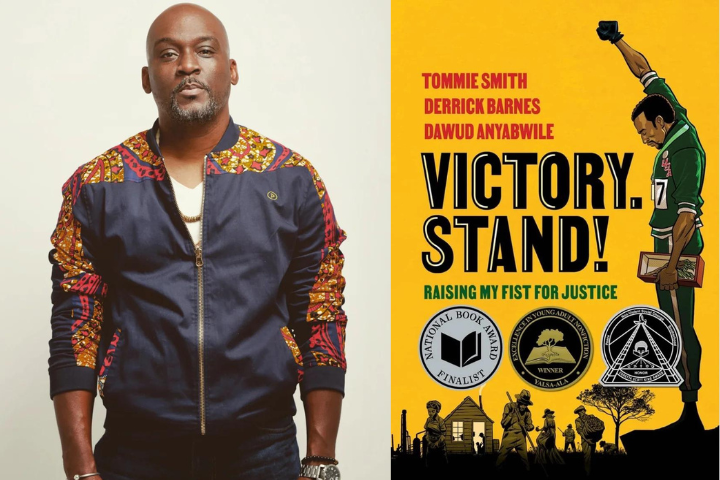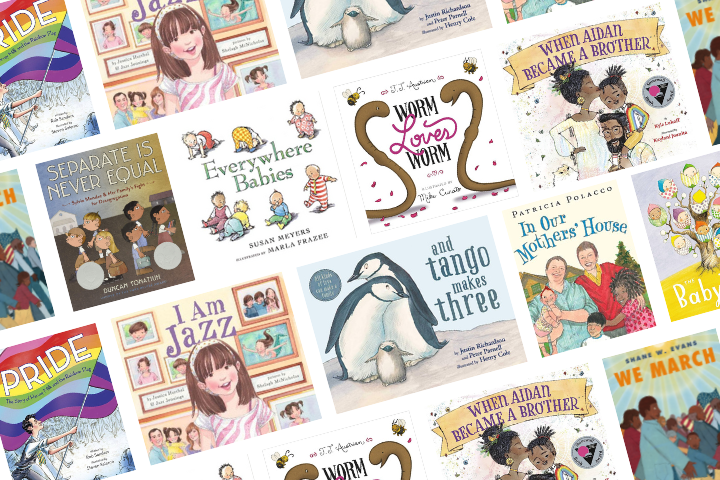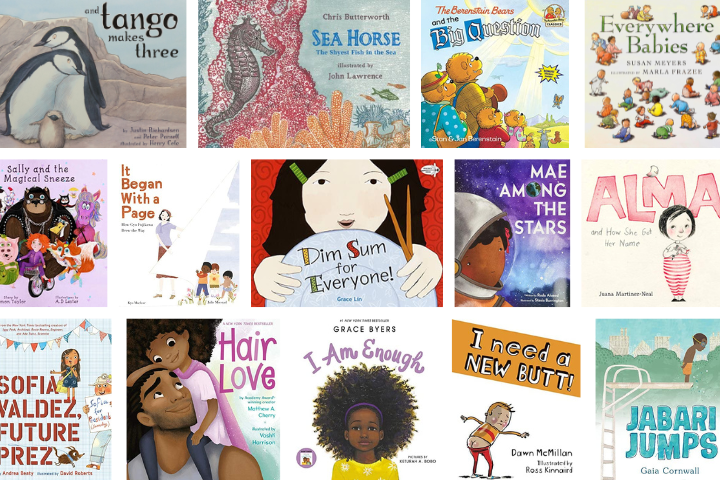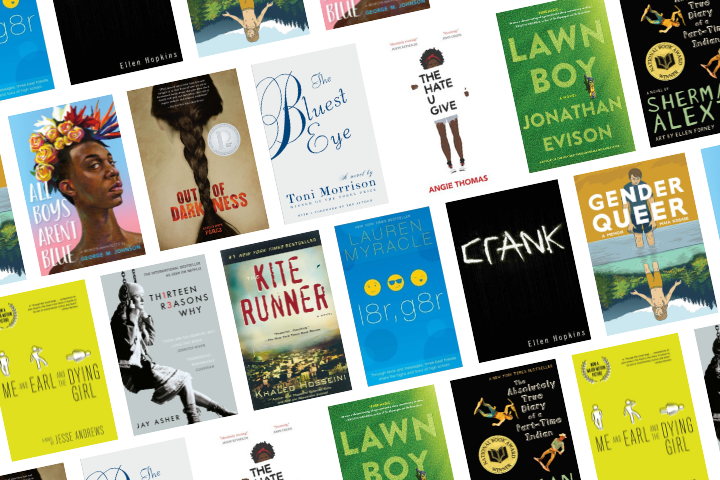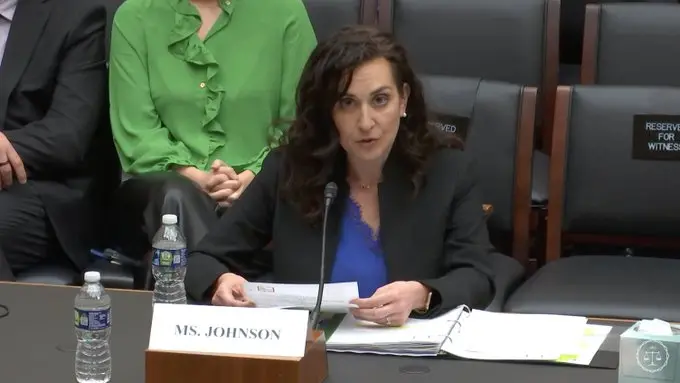
The United States is experiencing “the broadest attack on First Amendment rights in schools and universities this country has seen in generations,” Nadine Farid Johnson, PEN America’s managing director of Washington and Free Expression programs, testified.
Johnson testified before the House Judiciary Committee’s Subcommittee on the Constitution in a hearing on March 23 called “Free Speech: The Biden Administration’s Chilling of Parental Rights.”
Nadine Farid Johnson’s opening statement
Good afternoon. Thank you Chairman Johnson, Ranking Member Scanlon, and members of the Subcommittee and Committee. My name is Nadine Farid Johnson, and I am the Managing Director for Washington and Free Expression Programs at PEN America. It is an honor to testify today.
I am a daughter of immigrants, a mother of two young, school-aged children, an attorney by training, and a proud American who had the privilege of serving her country under both the Obama and Trump administrations.
PEN America is a nonprofit, nonpartisan organization that stands at the intersection of literature and human rights to protect free expression in the U.S. and around the globe. We view free speech as an underpinning of democracy and a cause above politics, and we are unwavering in our commitment to upholding this foundational right.
Today, we are in the midst of the broadest attack on First Amendment rights in schools and universities this country has seen in generations.
Throughout our nation’s history, we have seen waves of efforts to curtail access to books. At every turn, these censorious efforts have ultimately failed and the rights protected by the First Amendment have been preserved.
View this post on Instagram
In this new era of censorship, we have tracked 303 bills, which we term “educational gag orders,” in 44 states. These government restrictions forbid the teaching of specific curricula or ban certain concepts from the classroom. We have already seen the chilling effects of this kind of legislation on educators across the country.
Book banning is a compounding trend. We documented more than 2,500 instances of individual books being banned in the last school year, affecting 4 million children in 32 states. National and local groups purporting to represent the wishes of all parents are overwhelmingly targeting books with LGBTQ+ characters or themes, or primary characters who are people of color.
We must not confuse access to books and ideas with endorsement of their content. Books such as Mein Kampf, The Communist Manifesto, Uncle Tom’s Cabin, and Gone With the Wind are on public and school library shelves, as they should be. The right approach to such materials is to contextualize them and to read and teach them with sensitivity and a critical eye, not to deny access. And the right answer when it comes to different ideas about books cannot be to cull the ones to which anyone objects. That would too easily leave nothing on the shelf.
Parents have a right and a responsibility to be aware of, involved in, and express concerns about their children’s education. That’s why we have Parent Teacher Associations, sign up for parent-teacher conferences, attend school board meetings, and see school districts across the country publish their curricula. And for many of us, myself included, it is why we check our children’s homework, read to them or encourage them to read each night, and advocate for them when the need arises.
Yet much of what we are seeing now is not just parents being involved in their children’s classrooms. It is instead an effort to impose the wishes of a few onto entire communities, by enlisting the government to act as a proxy and engage in censorship on their behalf.
Supreme Court jurisprudence has repeatedly made clear that the First Amendment, including the right to receive ideas and information, applies in public schools, school boards may not “contract the spectrum of available knowledge.”
We can certainly disagree about and debate training materials, classroom discussion topics, and more. And at times, materials in use in American schools may be tendentious or heavy-handed. The right approach to handling this is to raise concerns and work together to address them. The answer is not legislated bans.
Given our work all over the world to fight threats to free speech, we at PEN America are particularly attuned to the fact that educational censorship laws and book bans are a longstanding tactic of oppressive regimes. Apartheid South Africa banned 12,000 books; the Nazi Party burned “un-German” ones.
More recently, Iran banned the study of English in primary school. Hungary banned all curriculum referencing homosexuality from schools. Russian laws ban so-called “LGBT propaganda,” and criticisms of the state.
Right now, in the U.S., measures aimed at silencing the exchange of ideas and open inquiry in schools are creating a climate of intimidation and fear that detracts from teaching and learning. We risk giving students only a sanitized, narrow education that will constrain their ability to understand and engage with the multiplicity of ideas, perspectives, people, and stories that make up our world. An erosion of trust in our educational institutions, our education professionals, and one another, risks undermining fundamental elements of our democracy.
I want to end with the words of a speaker at a meeting of the Martin County, Florida, school board earlier this week. A 100-year-old woman named Grace Lynn stepped up to speak, indicating she attended to share her shock and dismay at the recent book bans in her county. She noted that her husband had died young, fighting in the Second World War, to defend our democracy, our Constitution, and our freedoms. And she said: “Banned books and burning books are the same. Both are done for the same reason: Fear of knowledge. Fear is not freedom; fear is not liberty. Fear is control.” Let us choose courage instead. Thank you.




